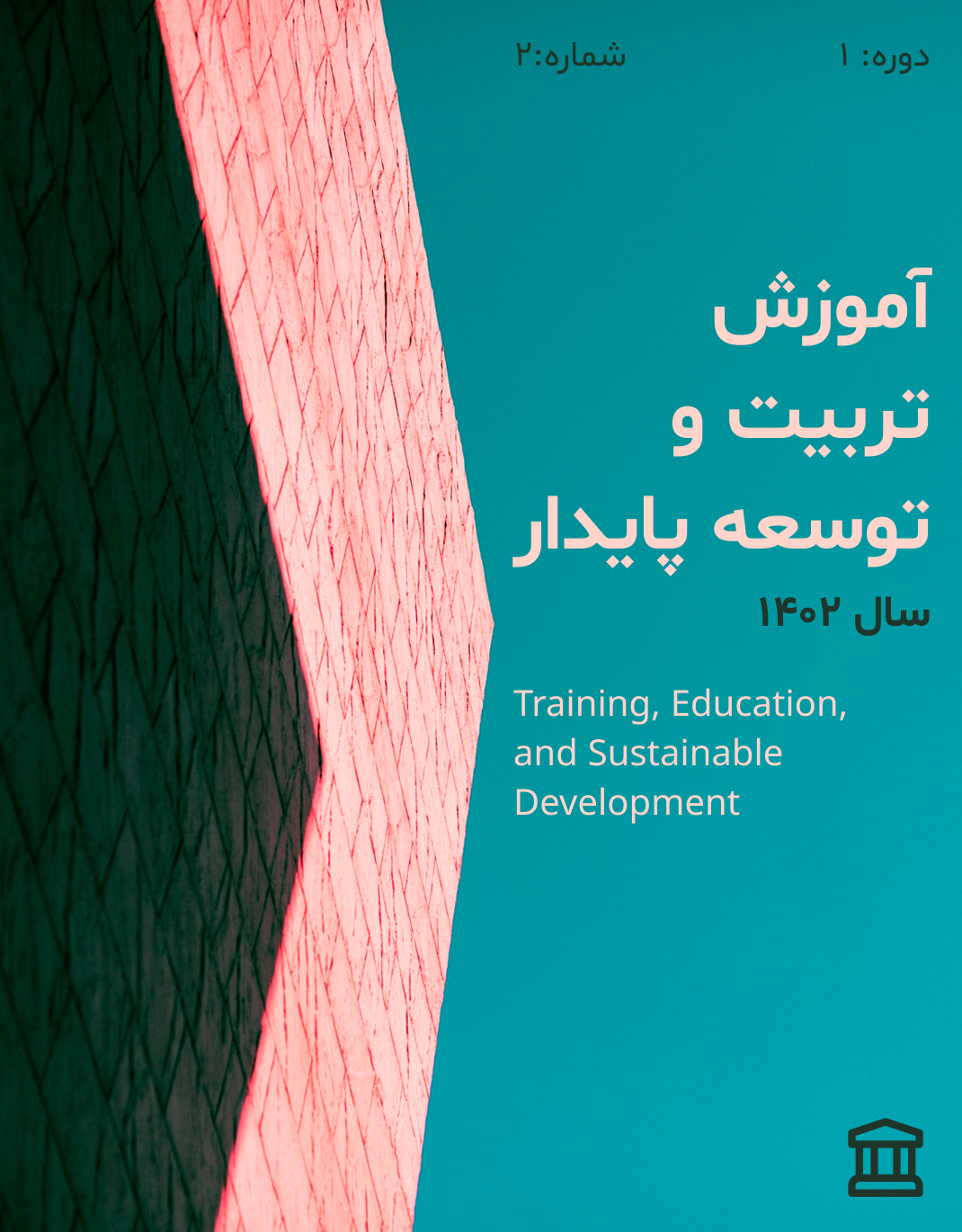Exploring the Components of Sustainable Development Literacy in the Primary Education System
Keywords:
Sustainable development literacy, primary education, environmental education, responsible citizenship, critical thinking, education for sustainabilityAbstract
The present study aims to identify the components of sustainable development literacy within the Iranian primary education system using a qualitative approach. This qualitative study employed thematic analysis. Data were collected through semi-structured interviews with 25 participants, including primary school teachers, educational experts, and policymakers based in Tehran. Purposeful sampling was used, and interviews continued until theoretical saturation was achieved. NVivo software was employed to analyze the data through open, axial, and selective coding. The analysis resulted in three main themes: “Environmental Awareness and Natural Resources,” “Responsible Citizenship and Developmental Ethics,” and “Critical Thinking and Informed Decision-Making.” Each theme encompassed multiple subcategories involving behavioral, cognitive, ethical, and attitudinal components essential for sustainable development literacy. Participants highlighted the significance of experiential education, social participation, ethical values, and cognitive skill development. The findings indicate that sustainable development literacy in primary education is a multidimensional concept requiring curriculum redesign, interdisciplinary integration, and capacity-building among teachers. These insights offer a framework for formulating effective educational policies and implementing sustainability-based teaching and learning programs in Iranian primary schools.
Downloads
References
Andersson, K., & Öhman, J. (2017). Young students’ conceptions of sustainable development. Environmental Education Research, 23(4), 436–449. https://doi.org/10.1080/13504622.2015.1125971
• Boeve-de Pauw, J., & Van Petegem, P. (2010). A cross-national perspective on youth environmental attitudes. Environmental Education Research, 16(1), 59–76. https://doi.org/10.1080/13504620903504065
• Borg, C., Gericke, N., Höglund, H.-O., & Bergman, E. (2014). Subject- and experience-bound differences in teachers’ conceptual understanding of sustainable development. Environmental Education Research, 20(4), 526–551. https://doi.org/10.1080/13504622.2013.833591
• Ghahramani, M. (2021). Challenges in environmental education in Iranian primary schools. Journal of Education and Society, 13(2), 145–162.
• Kazemi, F., & Gharehbagloo, M. (2022). Sustainable development in Iranian educational policies: A critical review. Iranian Journal of Educational Studies, 17(3), 201–220.
• Lozano, R., Merrill, M., Sammalisto, K., Ceulemans, K., & Lozano, F. J. (2017). Connecting Competences and Pedagogical Approaches for Sustainable Development in Higher Education: A Literature Review and Framework Proposal. Sustainability, 9(10), 1889. https://doi.org/10.3390/su9101889
• Olsson, D., Gericke, N., & Chang Rundgren, S. N. (2016). The effect of implementation of education for sustainable development in Swedish compulsory schools. Environment, Development and Sustainability, 18(3), 697–713. https://doi.org/10.1007/s10668-015-9676-7
• Rieckmann, M. (2012). Future-oriented higher education: Which key competencies should be fostered through university teaching and learning? Futures, 44(2), 127–135. https://doi.org/10.1016/j.futures.2011.09.005
• Tilbury, D. (2011). Education for Sustainable Development: An Expert Review of Processes and Learning. UNESCO.
• UNESCO. (2017). Education for Sustainable Development Goals: Learning Objectives. Paris: UNESCO.
• UNESCO. (2020). Education for Sustainable Development: A Roadmap. Paris: UNESCO.
• Wals, A. E. J. (2015). Beyond unreasonable doubt: Education and learning for socio-ecological sustainability in the Anthropocene. Wageningen University.
• Zakerian, M., & Asadollahzadeh, S. (2019). Environmental Literacy in Iranian Curriculum: A Gap Analysis. Journal of Curriculum Studies, 11(4), 55–74.
Downloads
Published
Submitted
Revised
Accepted
Issue
Section
License

This work is licensed under a Creative Commons Attribution-NonCommercial 4.0 International License.


